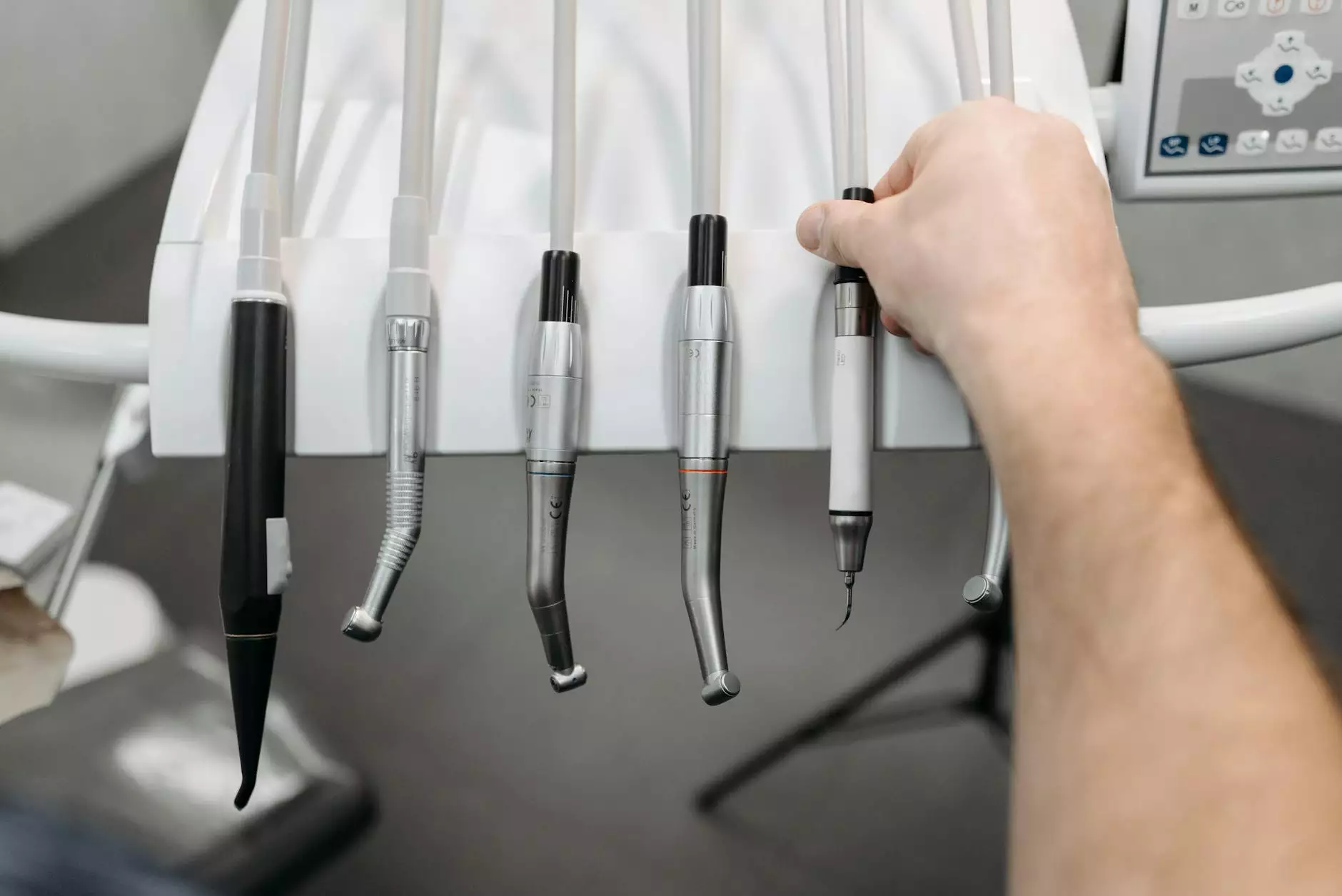Unlocking Efficiency: The Best Data Collection Software for Your Business

In today's rapidly changing business landscape, the ability to collect, analyze, and utilize data effectively is more crucial than ever. Whether you are a small business owner or part of a larger enterprise, having the right tools at your disposal can make a profound difference in your operations, strategy, and success. This is where the best data collection software comes into play, empowering organizations to harness data in the most effective manner.
What is Data Collection Software?
Data collection software is a type of application designed to gather and organize information from various sources. It can capture data through forms, surveys, observation, and digitization of records, allowing businesses to turn raw data into actionable insights. Effective data collection processes enhance decision-making, improve customer experiences, and streamline operational efficiency.
The Importance of Data Collection in Business
Understanding the significance of data collection in business is essential. Here are some compelling reasons:
- Informed Decision-Making: Reliable data provides insights that enable leaders to make decisions backed by factual information.
- Enhanced Customer Understanding: Collecting customer data helps businesses tailor their offerings, leading to improved customer satisfaction and loyalty.
- Operational Efficiency: Streamlined data collection processes save time and resources, allowing teams to focus on core activities.
- Compliance and Security: Proper data management helps organizations comply with regulations and protect sensitive information.
- Predictive Analytics: Data collected over time allows businesses to forecast future trends and behaviors, assisting in proactive strategies.
Characteristics of the Best Data Collection Software
When considering which data collection software to choose, it's essential to evaluate its features and capabilities. The best data collection software typically includes:
User-Friendly Interface
A clean and intuitive interface ensures that users, regardless of their technical ability, can navigate the software with ease. A user-friendly design saves time during training and allows for quicker adoption by teams.
Customization Options
Every business has unique needs. The best software offers customizable forms and templates, enabling businesses to tailor the data collection process according to their specific requirements.
Integration Capabilities
Data does not exist in silos; it flows through different systems. The best software should integrate seamlessly with existing platforms such as CRM tools, accounting software, and various applications to provide a holistic view of the data.
Real-Time Data Collection
Timeliness is key in the world of data analysis. The ability to collect and analyze data in real-time allows businesses to act swiftly and accurately in their operations.
Robust Reporting and Analytics
The best data collection software not only gathers information but also transforms it into meaningful reports and insights. Features like data visualization, dashboards, and analytical tools should be a standard offering.
Mobile Compatibility
As workforces become increasingly mobile, it’s crucial to choose software that supports data collection on mobile devices. This functionality allows employees to gather data from the field, enhancing accuracy and immediacy.
Top Data Collection Software Solutions to Consider
Many software solutions stand out in the marketplace. Below are some of the leading options for businesses looking for the best data collection software:
1. Google Forms
Google Forms is a user-friendly tool ideal for small to medium-sized businesses. It allows for quick survey creation and data collection, and integrates seamlessly with Google Sheets for easy data analysis.
2. SurveyMonkey
SurveyMonkey is renowned for its sophisticated survey capabilities. It offers advanced analytics and reporting features, making it a great choice for businesses that require in-depth insights from customer feedback.
3. JotForm
JotForm is a versatile form builder that allows users to design custom forms. With numerous integrations, it’s perfect for businesses looking to streamline their data collection while ensuring a great user experience.
4. Qualtrics
Qualtrics is an enterprise-focused platform known for its robust capabilities in survey and feedback management. It’s especially beneficial for businesses needing advanced research tools and analytics.
5. Typeform
Typeform’s unique feature is its engaging, interactive forms. Businesses looking for a more personal touch in their surveys will find Typeform’s design appealing and effective in collecting data.
Implementing Data Collection Software in Your Business
Adopting data collection software is more than just installing a new program. Here are steps to ensure successful implementation:
- Assess Your Needs: Before choosing software, evaluate what data you need to collect and how it will be used.
- Involve Stakeholders: Engage team members who will be using the software to ensure that it meets all operational requirements.
- Training: Provide thorough training to users to help them understand the functionality and capabilities of the software.
- Pilot Testing: Conduct a pilot test to troubleshoot any issues before a full rollout.
- Monitor and Optimize: After implementation, continuously monitor the use of the software and be open to making adjustments for optimization.
Case Studies: Success Stories with Data Collection Software
Many companies have transformed their operations through effective data collection tools:
Case Study 1: Keymakr
Keymakr, a prominent player in the home services and locksmith industry, adopted data collection software to optimize its customer engagement strategy. By implementing a customized survey through JotForm, they were able to gather feedback on their services and products. This data was analyzed to identify trends and areas for improvement, leading to a 20% increase in customer satisfaction ratings and enhanced service offerings.
Case Study 2: Retail Analysis
A leading retail chain utilized SurveyMonkey for collecting customer feedback regarding shopping experiences. The gathered data provided insights that led to changes in store layouts and product placements, directly influencing a 15% improvement in sales over the next quarter.
Challenges in Data Collection and How to Overcome Them
While data collection can yield great benefits, businesses may encounter challenges such as data quality, compliance issues, and user adoption. Here’s how to tackle these challenges:
Data Quality
Ensuring that the data collected is accurate and relevant is essential. Develop standard operating procedures for data entry and validation checks.
Compliance and Security
Many industries have strict regulations regarding data collection. Familiarize yourself with applicable laws such as GDPR and CCPA and ensure your software complies with these regulations.
User Adoption
Overcoming resistance to new technology can be a significant hurdle. Communicate the benefits clearly and provide continuous support to help users adapt smoothly.
The Future of Data Collection Software
The future of data collection software is bright, with advancements in technology driving innovation in this field. Here are some trends to watch:
- Artificial Intelligence (AI): AI will enhance data analysis capabilities, enabling businesses to uncover deeper insights and trends.
- Automated Data Collection: Automation will reduce manual errors and streamline processes, leading to more efficient data flow.
- Improved Mobile Functionality: As more employees move to mobile work, data collection software will increasingly focus on providing robust mobile features.
- Greater Focus on Data Privacy: Companies will prioritize data protection and user privacy, creating solutions that ensure compliance with global standards.
Conclusion: Choosing the Best Data Collection Software
In conclusion, selecting the best data collection software is paramount for any business looking to enhance its operations, customer understanding, and data-driven decision-making. The right software can empower organizations to collect, analyze, and utilize data effectively, driving growth and success in a competitive marketplace.
By considering factors such as user-friendliness, integration capabilities, and customization options, you can find the perfect fit for your needs. Remember that effective implementation is critical; investing time in training and optimization will pay dividends in the long run.
As we move further into the age of information, harnessing the power of data through well-chosen software will undoubtedly be a key differentiator for successful businesses.









